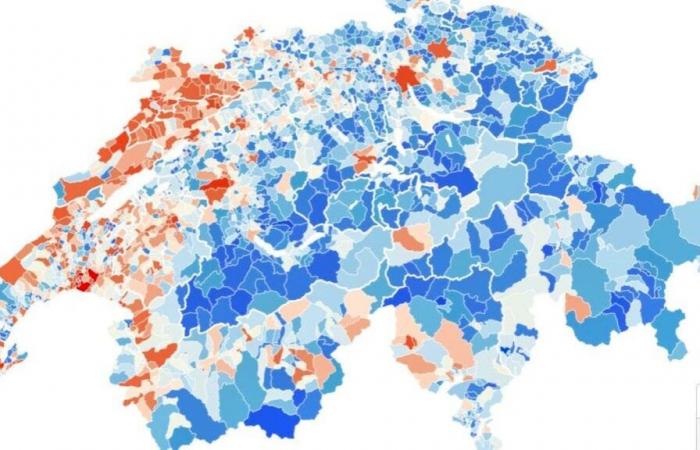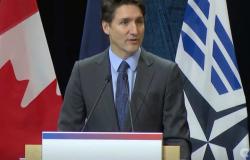In terms of health and health insurance, Sunday’s result confirms a persistent röstigraben between French-speaking Switzerland and German-speaking Switzerland. All the French-speaking cantons refused this reform this weekend (62.5% no on average), unlike all the German-speaking cantons which accepted it. In the end, the majority won with 53.3% yes.
In June, French-speaking Switzerland had already experienced the same gap with the initiative to limit bonuses to 10%, which the German-speaking Swiss had refused en bloc, except Basel-City. In 2014, ten years ago, during the last vote for a single fund, the cantons of Geneva, Vaud, Neuchâtel and Jura said yes. But the Swiss people, predominantly German-speaking, refused by 61.9%.
On Sunday, German-speaking support for the reform demonstrated once again the big difference in perception of health policy on both sides of the Sarine. It should be remembered that in French-speaking Switzerland, we have been paying significantly more expensive premiums for years. Thus, for 2025, the average premium in Geneva is 572 francs, while it is 308 francs in inland Appenzell Rhodes.
As a result, German-speaking people support the current liberal health policy, which ultimately does not cost them too much. Conversely, in French-speaking Switzerland, the impression prevails that the system is unmanned and that each year, policyholders are presented with an ever heavier bill.
Will the introduction of EFAS or homogeneous financing for ambulatory, inpatient or EMS services have an impact on the control of health costs and the stability of premiums? No one dares to overpromise.
Our Minister of Health, Elisabeth Baume-Schneider seems to believe in it, even if her speech on Sunday is a little contradictory: “This reform represents real progress, more transparency and it maintains the quality of care while relieving premium payers . That said, I hear the fears of those who opposed it, particularly in French-speaking Switzerland. I can assure them that EFAS guarantees a sharing of responsibilities, but that other reforms will still be necessary to control costs.
We will still remember that she affirms that this will “relieve” premium payers, without saying to what extent. It took Parliament fourteen years to bring EFAS to fruition. In fact, the reform will come into force in 2028 concerning hospital financing and in 2032 for long-term care in EMS. In itself, this slowness is already so revealing of the immobility of the system, where each health partner will want to give themselves time so as not to reduce their business performance.






